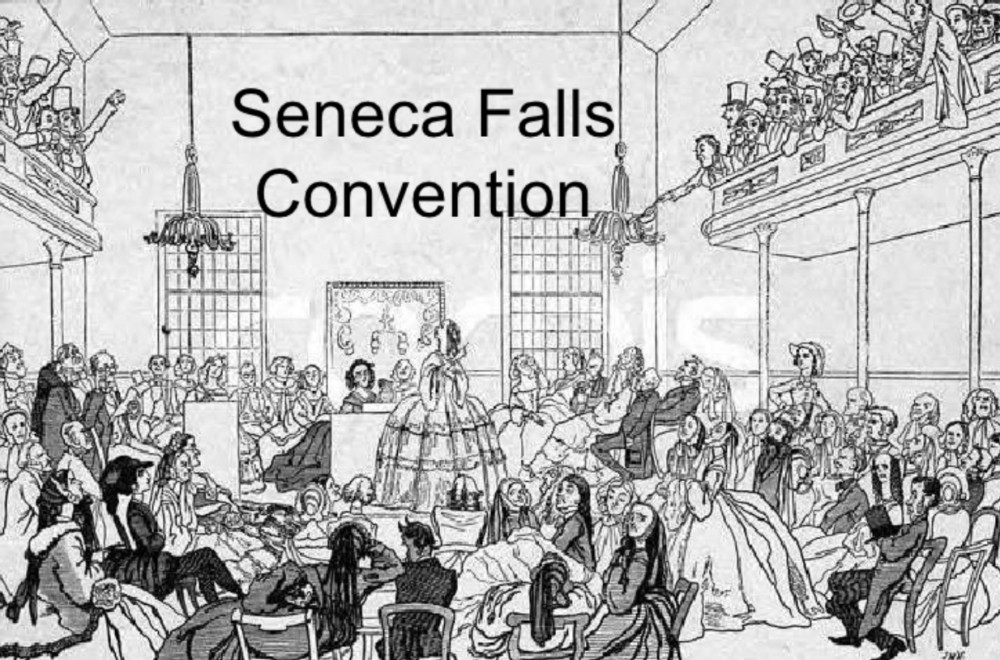EDITORIAL
The Buffalo News, N.Y.
WWR Article Summary (tl;dr) It was in New York that the women’s suffrage movement began, in 1848 at the first Women’s Rights Convention in Seneca Falls.
The Buffalo News
On the fundamental matter of women’s equality, New York has long been a leader.
While Americans today celebrate the 100th anniversary of the passage of the 19th Amendment to the Constitution, giving women the right to vote, New York had taken that step two years earlier. This is a day for New Yorkers, especially, to be proud but also to acknowledge the work that remains.
It was in New York that the women’s suffrage movement began, in 1848 at the first Women’s Rights Convention in Seneca Falls. It was a long slog from there to 1919 and it’s right that all Americans remember — or become familiar with — the crucial roles played by Elizabeth Cady Stanton and Susan B. Anthony, both New Yorkers.
Of course, this is also the state where 123 women and girls — and 23 men — died in the Triangle Shirtwaist Factory fire in Manhattan in 1911. Men had locked the women in the room where they were sewing, and they either died in the fire or jumped to their deaths from the building’s eighth, ninth and 10th floors.
Equality, it seems, is always a work in progress, always a struggle.
While the Institute for Women’s Policy Research ranks New York fifth overall among the states in the status of women, a more searching look at the numbers shows how much work remains. (Others in the top 5 are Connecticut, Massachusetts, Maryland and, at the top of its list, the District of Columbia.)
On employment and earnings, for example, New York does well in comparison to others. Here, women are paid 90 cents for every dollar earned by men. They are nine-tenths equal, which is to say, not equal. Nonetheless, they fare better than women in West Virginia, who are only 74% equal in pay.
But in other areas, the scorecard is dismaying. In political participation, the state that boasts of its progressiveness, women rank only 22nd among the states. (See also Monday’s Another Voice column by Lt. Gov. Kathy Hochul of Hamburg.)
In terms of women elected to office, registered to vote and actually voting, the state ranks fair to poor. (In both voting categories, however, women ranked better than the state’s men.)
And so it goes. New ranked 15th among the 50 states for women in “Poverty and Opportunity” and seventh in reproductive rights, Distressingly, New York ranked only 30th in women’s health and well-being.
More encouraging, New York leads the nation in “Work and Family,” owing in part to the state’s family leave law. Even then, its grade was only a B.
So, it’s always about progress and, looking back 100 years, progress has been explosive. Before Aug. 26, 1919, women had no federal right to vote. They were expected to stay home and to submit to their husbands. They were discouraged from seeking an education, from pursuing careers, from expressing an opinion about matters of public interest.
Today, more women attend college than men and they graduate on time at a higher rate. They are well ingrained in most aspects of economic life. It’s surprising for them to lead large organizations. (See: Mary Barra at General Motors; Abigail Johnson at Fidelity Investments; Oprah Winfrey at nearly everything.)
Women have also grown in politics. Twenty-five women, including New York’s Kirsten Gillibrand, serve in the U.S. Senate. Still, they represent just a quarter of its membership. In the House, 102 women serve, though just 23.4% of the membership.
And, despite the strong examples of women’s leadership in places such as Germany, Israel, India, Great Britain and Denmark, the United States has elected no woman as president. Sexual assault and harassment remain serious issues for women, including those who comprise about 14% of the U.S. military.
But focus on home.
No woman has been mayor of Buffalo or Erie County executive. Western New York’s standard-bearer is Hochul, who has served as Erie County clerk, member of Congress and, now, lieutenant governor — and she wants to see more women take up the cause.
There are obstacles. Some women hate having to raise money. Some rank their duties as mothers higher (which raises a question about men). But it’s about progress.
Today, that’s what we celebrate, understanding, as the late Sen. Edward Kennedy observed in a different context, that the work goes on and the cause endures.
We can do better.
___
Distributed by Tribune Content Agency, LLC.














































































































































































































































































































































































